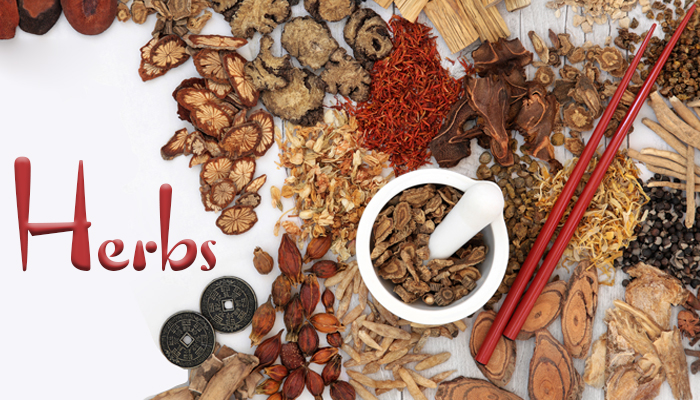Herbs have been used for centuries for other purposes besides seasoning food. Today, there are so many sources to order herbal remedies for just about any health concern from cancer to dry skin. Be a discerning consumer and do not rely on solely one source, such as the internet. Herbs are not, in general, a cure-all, but an addition to a health regime to maintain or improve overall health—not necessarily cure disease by itself.

Who can you rely on then to get the right information about using herbs for wellness? Talk to your chiropractor and acupuncturist. They will have the certification and training necessary to assist you with herbal remedies. Herbs are a feasible alternative to traditional medical treatments, especially when approved by the U.S. Food and Drug Administration and your healthcare provider. In this blog are just a few herbs of the popular herbs currently used for medicinal purposes and a bit of information about them.
ECHINACEA
Pure Echinacea (zi zhu hua in Chinese) extract is good to fight off colds, UTI (urinary tract infections), or the flu. Echinacea can lose its effectiveness with long-term use and should never be used in place of traditional medical treatments for infection. Try to stay away from any product that mixes Echinacea with goldenseal.
GARLIC
In many countries, Garlic (Da Suan in Chinese) has been used for centuries for health benefits. Current research has shown that dried garlic pills or one raw clove of garlic daily lowers total cholesterol more than 11 percent and LDL more than 14 percent among people with levels over 200!
GINKGO
Ginko (Bái Guǒ in Chinese) has a long history of use beginning in the royal courts of ancient China. Ginko improves blood flow to the brain and extremities and may help alleviate vertigo and tinnitus (ringing in the ears). You may need to take the herb for up to six weeks before seeing any improvement.
LICORICE
Licorice (Gan Cao in Chinese) is a root from which a sweet flavor can be extracted. Licorice root contains more than 400 phytochemicals, one of which has been shown to protect lab animals from lethal doses of a flu virus. Additional studies have suggested that it lowers the risk of breast cancer in mice, and may reduce the risk of clogged arteries by blocking the oxidation of cholesterol. However, in large amounts and with long-term use, licorice root can cause high blood pressure and low potassium levels, which could lead to heart and muscle problems.
SAW PALMETTO BERRY
Saw Palmetto Berry (Ju Ye Zong in Chinese) is effective in treating the symptoms associated with an enlarged prostate. While it doesn’t actually shrink the prostate, it does relieve the symptoms of enlargement, such as frequent urination. Additionally, it is used for chronic pelvic pain, decreased sex drive, migraine, hair loss, and other conditions.
ST. JOHN’S WORT
St. John’s Wort (Guan Ye Lian Qiao in Chinese) may interact with certain drugs metabolized by the same liver enzyme system as the herb, so people with autoimmune diseases should avoid it. This herb is an option for low-level depression and can also be used menopause symptoms such as hot flashes and mood changes. St. John’s Wort can also increase susceptibility to sunburn and cataracts.
VALERIAN
Research has shown that valerian (Xie Cao in Chinese) induces and enhances sleep. Several studies suggest that valerian reduces the time it takes to fall asleep. This is good news for people who suffer from insomnia and other sleep problems. While infrequent users have reported hangover-like side effects, these symptoms lessen with repeated use. Side effects such as dizziness, headache, stomach problems or sleeplessness have been reported. Valerian may not be safe if you’re pregnant or breast-feeding or for young children.
Always consult with your pharmacist and doctor for any drug interaction using any herb. Be sure to tell all your health care providers about any holistic health approaches you use. This will help ensure coordinated and safe care. Questions about how herbs can be added to your health regime, contact Dr. Ryan Han today!


 What is Cupping?
What is Cupping?